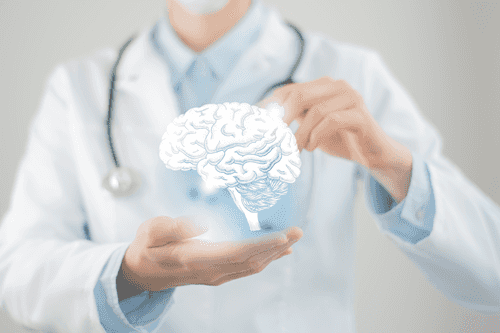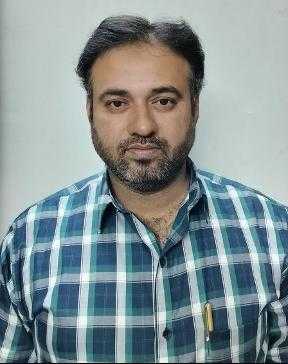
Expert Physiotherapy at Home
Certified physiotherapists visit you at home to provide focused, one-on-one care tailored to your needs. With no travel or waiting rooms, recovery happens in a setting that is comfortable, familiar, and built around your convenience.
Personalised Recovery Programmes
Every treatment plan is designed to suit your condition, goals, and pace. Our physiotherapists follow structured, evolving protocols to ensure consistent progress, with each session aligned to deliver meaningful results.
Trusted Physiotherapists. Real Results.
Our team comprises experienced, background-verified physiotherapists trusted by thousands of families. With a strong focus on safety, reliability, and clinical outcomes, we make recovery at home both effective and reassuring
Patient Testimonials
Portea Physiotherapists for Home Visits
Meet some of our experienced and dedicated healthcare professionals

Dr. Lokesh G
Physiotherapist
Specializations
Experienced in Neurological rehabilitation, Orthopaedic physiotherapy, and Paediatric care
Delivers structured, high-impact treatment plans across neuro, ortho, and paediatrics—ensuring safety, comfort, and measurable recovery at every stage.

Dr. Mohammed Sarwar
Physiotherapist
Specializations
Experienced in Neurological rehabilitation, Adult physiotherapy, and Paediatric care
Combines deep clinical expertise with a compassionate approach, supporting both adults and children through neuro and physical rehabilitation that promotes long-term independence and recovery.

Dr. Nelapati Divya
Physiotherapist
Specializations
Skilled in Orthopaedic rehabilitation, Manual therapy techniques, and Paediatric physiotherapy
Brings a personalised, hands-on approach to healing—combining structural expertise with paediatric sensitivity to restore movement, relieve pain, and improve everyday function.

Dr. Naveen V
Physiotherapist
Specializations
Trained in Pain management, Cardiac and Orthopaedic rehabilitation, Neurological care, and Neural tissue mobilisation
Brings clinical precision and empathy together—designing science-backed recovery protocols for pain relief, nerve mobilisation, and cardio-neuro-ortho rehabilitation across all age groups

Dr. Miloni Savla
Physiotherapist
Specializations
Holds an MPT in Orthopaedics with a focus on Musculoskeletal rehabilitation and strength recovery
Delivers focused, movement-oriented therapy grounded in orthopaedic science—helping patients rebuild strength, restore function, and return to daily life with confidence
Other Cities
Physiotherapy Treatments

introduction
A Transient Ischemic Attack (TIA), often referred to as a mini-stroke, is a temporary period of neurological dysfunction caused by a brief blockage of blood flow to the brain. Unlike a full-blown stroke, a TIA does not cause permanent damage, but it is a serious warning sign of an impending major stroke. Many people ignore TIAs because the symptoms disappear within minutes to hours, but seeking immediate medical attention is crucial to preventing a potentially fatal or debilitating stroke.
This article delves into the causes, symptoms, risk factors, diagnostic methods, treatment options, and rehabilitation strategies for TIA, along with prevention tips and how physiotherapy plays a role in recovery.
causes of transient ischemic attack (tia)
A TIA occurs when there is a temporary blockage of blood flow to the brain, usually due to:
- Atherosclerosis: The buildup of fatty deposits (plaques) in the arteries, narrowing them and restricting blood flow.
- Blood Clots: Clots or debris from other parts of the body (such as the heart) can travel to the brain and cause a temporary blockage.
- Carotid Artery Disease: Narrowing of the carotid arteries, which supply blood to the brain, increases the risk of TIAs.
- Heart Conditions: Atrial fibrillation (irregular heartbeat), heart valve disease, and recent heart attacks can contribute to TIA.
- High Blood Pressure: Chronic hypertension can weaken blood vessels and lead to temporary blockages.
symptoms of tia
TIA symptoms resemble those of a stroke but resolve within a few minutes to hours. The most common symptoms include:
- Sudden weakness or numbness in the face, arm, or leg, often on one side of the body.
- Slurred speech or difficulty speaking (aphasia).
- Temporary loss of vision in one or both eyes or double vision.
- Dizziness or loss of balance and coordination.
- Severe headache without any known cause.
Since TIA symptoms disappear quickly, many people dismiss them as minor. However, a TIA should be taken very seriously, as it significantly increases the risk of a major stroke within days or weeks.
risk factors for tia
Certain factors increase the likelihood of experiencing a TIA. These include:
- High blood pressure (hypertension) – The leading cause of stroke and TIA.
- Diabetes – Increases the risk of blood vessel damage and clot formation.
- Smoking – Nicotine and carbon monoxide damage blood vessels and promote clot formation.
- High cholesterol – Leads to plaque buildup in arteries, restricting blood flow.
- Obesity and physical inactivity – Excess weight and lack of exercise contribute to hypertension and diabetes.
- Atrial fibrillation – An irregular heart rhythm that can cause clots to travel to the brain.
- Family history of stroke or TIA – A genetic predisposition to cardiovascular diseases.
- Excessive alcohol consumption – Can increase blood pressure and the risk of clotting.
- Unhealthy diet – High sodium and fat intake contribute to high blood pressure and cholesterol issues.
By addressing these risk factors, the chances of experiencing a TIA or stroke can be significantly reduced.
diagnosis of tia
Since the symptoms of a TIA disappear quickly, diagnosing it can be challenging. However, doctors use various methods to assess whether a patient has experienced a mini-stroke:
- Physical Examination & Medical History – Evaluating symptoms and checking for risk factors.
- Neurological Examination – Assessing speech, motor function, coordination, and reflexes.
- Imaging Tests:
- CT Scan or MRI – Detects signs of previous strokes or blockages in the brain.
- Carotid Ultrasound – Checks for narrowing or blockages in the carotid arteries.
- Echocardiogram – Evaluates the heart for clots that could travel to the brain.
- Blood Tests – Measures cholesterol, blood sugar, and clotting factors.
- Electrocardiogram (ECG) – Identifies abnormal heart rhythms, such as atrial fibrillation.
Early diagnosis of a TIA allows for preventive measures to be taken before a full stroke occurs.
treatment & rehabilitation for tia
The primary goal of treating TIA is to prevent a future stroke by managing risk factors and improving blood flow to the brain.
1. Medications
Doctors may prescribe medications to reduce the risk of blood clots and stroke, including:
- Antiplatelet Drugs – Such as aspirin or clopidogrel to prevent clot formation.
- Anticoagulants – Such as warfarin or newer blood thinners like apixaban for high-risk patients.
- Blood Pressure Medications – To lower hypertension and reduce stroke risk.
- Cholesterol-Lowering Drugs (Statins) – To prevent further artery blockages.
2. Lifestyle Modifications
Making key lifestyle changes can significantly reduce stroke risk:
- Regular Exercise – At least 30 minutes of moderate activity most days of the week.
- Healthy Diet – A diet rich in fruits, vegetables, whole grains, and lean proteins.
- Smoking Cessation – Stopping smoking immediately reduces stroke risk.
- Limiting Alcohol – Keeping alcohol consumption moderate or avoiding it altogether.
3. Surgical and Interventional Procedures
- Carotid Endarterectomy – A procedure to remove plaques from the carotid artery.
- Angioplasty & Stenting – A minimally invasive procedure to open blocked arteries.
role of physiotherapy in tia recovery
While a TIA does not cause permanent damage, some patients may experience lingering issues, such as mild weakness, balance problems, or difficulty with coordination. Physiotherapy plays a crucial role in recovery by:
- Improving Strength & Mobility – Exercises to restore muscle function and prevent stiffness.
- Enhancing Balance & Coordination – Preventing falls and improving motor control.
- Cardiovascular Fitness Training – Helping the heart and blood vessels stay healthy.
- Post-Stroke Prevention Exercises – Reducing the chances of developing a major stroke.
Rehabilitation tailored to the patient’s specific needs ensures a full and effective recovery.
how portea supports tia recovery & stroke prevention
At Portea, we specialize in comprehensive physiotherapy services designed to help individuals recover from TIAs and prevent future strokes. Our home-based care services include:
- Post-Surgical Rehabilitation – Helping patients recover from vascular or neurological surgeries.
- Arthritis Care – Managing joint health to improve mobility.
- Neuro-Rehabilitation – Addressing stroke-related motor issues and neurological recovery.
- Sports Injury Recovery – Providing therapy for injuries that could increase stroke risk.
- Orthopedic Care – Supporting musculoskeletal health for better posture and movement.
- Elderly Physiotherapy & Respiratory Therapy – Enhancing overall well-being in aging individuals.
With a dedicated and experienced team, we ensure personalized and professional care to help patients regain function and lead healthier lives—all in the comfort of their homes.
conclusion
A Transient Ischemic Attack (TIA) serves as a critical warning sign for future strokes. Recognizing symptoms early, seeking immediate medical attention, and making lifestyle changes are key to preventing a major stroke. With proper medical care, rehabilitation, and physiotherapy, individuals can recover effectively and reduce their risk of recurrence. Taking proactive steps today can help prevent a life-altering event tomorrow.
faqs
1.What causes a TIA?
TIAs are caused by temporary blood flow blockages due to blood clots, narrowed arteries, or embolisms from the heart. High blood pressure, diabetes, and high cholesterol increase the risk.
2.How is a TIA diagnosed?
A TIA is diagnosed through medical history, physical exams, and imaging tests like MRI, CT scans, carotid ultrasound, and blood tests to identify underlying causes and stroke risk factors.
3.What is the treatment for a TIA?
Treatment includes lifestyle changes, medications (blood thinners, statins, antihypertensives), and sometimes surgery to prevent future strokes. Managing underlying conditions reduces stroke risk.
4.Can a TIA lead to a stroke?
Yes, a TIA significantly increases the risk of a future stroke. Immediate medical attention and preventive measures are crucial to lowering stroke chances.
5.How can TIAs be prevented?
Prevention includes controlling blood pressure, quitting smoking, maintaining a healthy diet, exercising, and managing conditions like diabetes and high cholesterol. Medications may also help reduce stroke risk.
Doctor Consultation
Nursing
Physiotherapy
Trained Attendant
Elder Care
Mother & Baby Care
Lab Tests
Medical Equipment
Speciality Pharma
Critical Care




